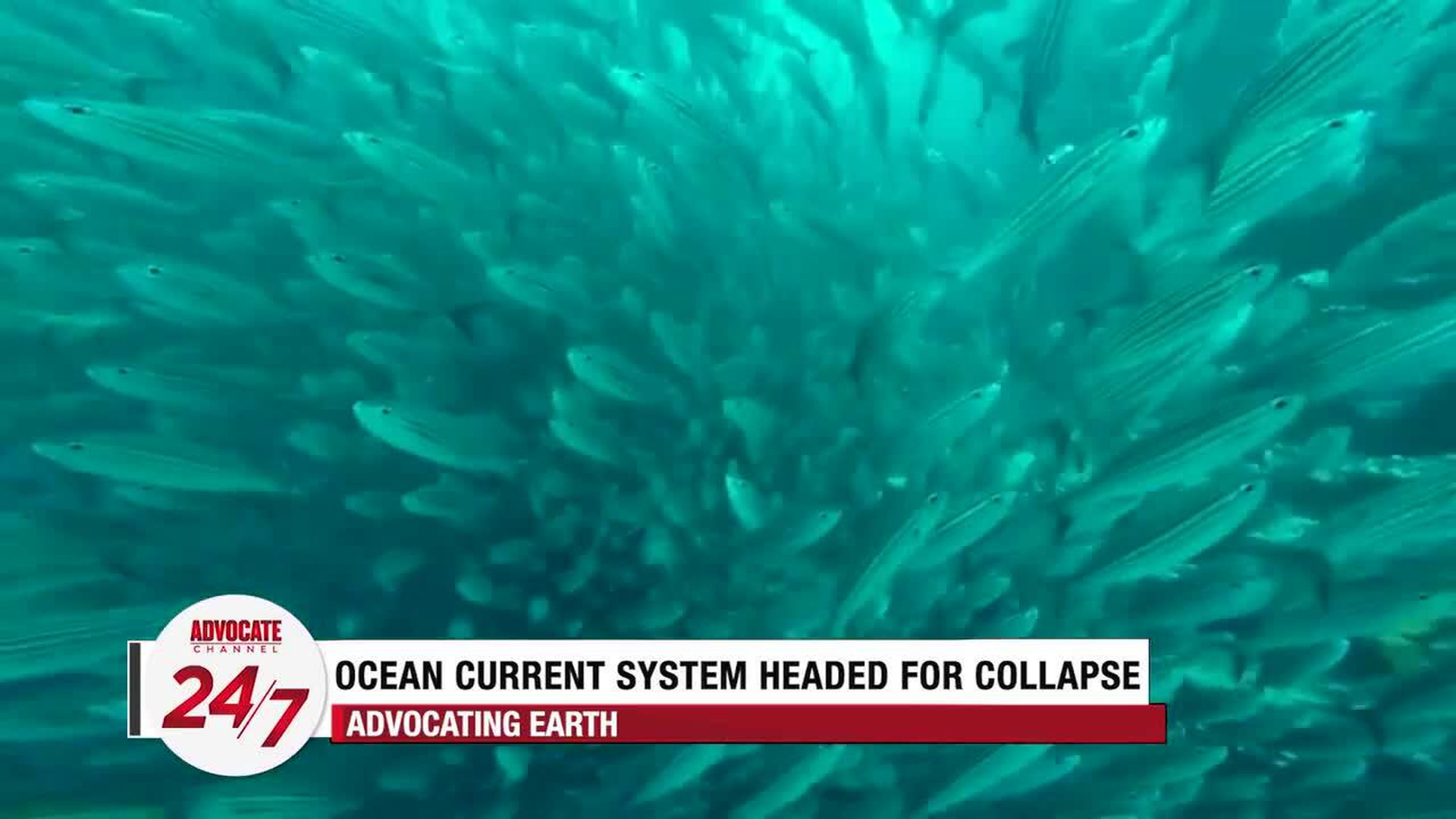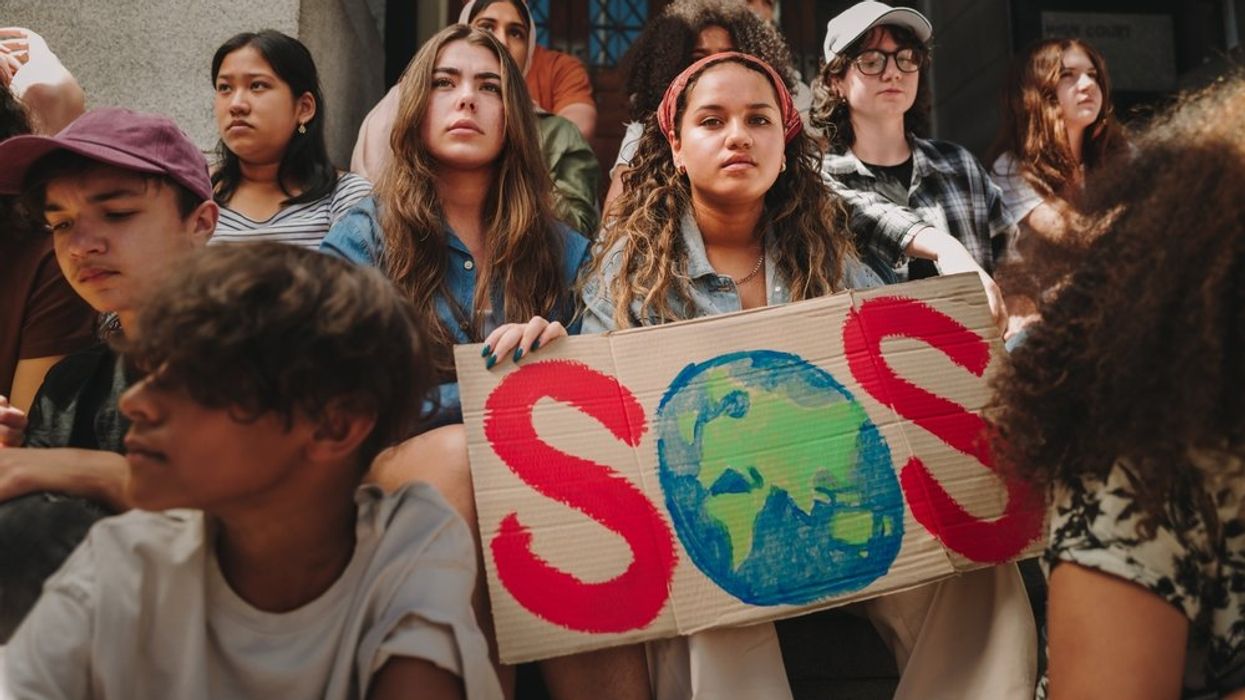(CNN) — Climate change can play a major role in affecting young people’s mental health, according to a new report from the American Psychological Association.
Written in collaboration with the climate advocacy organization ecoAmerica, the report documents how environmental events linked to climate change – including weather disasters, extreme heat, and poor air quality – can trigger or exacerbate mental health issues for kids and teens.
Natural disasters can lead to post-traumatic stress disorder in these groups, the report says. Longer-term problems like heat, drought and poor air quality can increase the risks of anxiety, depression, bipolar disorder, aggression, cognitive impairment and more.
“The report documents psychological harms that are happening right now to the children and youth in our country,” Dr. Dennis P. Stolle, the association’s senior director of applied psychology who reviewed the report, wrote in an email to CNN. “These are not issues that we can wait and resolve later. As a society, we must act now.”
The report, released Wednesday, serves as a follow-up to a 2021 study conducted by the American Psychological Association and ecoAmerica. It’s the latest in a series of studies by the two organizations dating to 2014. The studies don’t involve new experiments; rather, they summarize existing research about climate change, mental health and youth development.
Problems begin before birth
According to Dr. Sue Clayton, a professor of psychology at the College of Wooster and the report’s lead author, climate change-related weather events leave kids more vulnerable to mental health consequences because young people might not have the coping strategies that adults do.
If a parent is stressed by hardship associated with an environmental event, like extreme heat or wildfires, it may influence their children’s mental health, as well.
“If your parent is under stress because of worries or these fears, that can affect a child and their mental health,” Clayton said. “Experiencing trauma at an early age can have lifelong impacts on emotional health and well-being.”
Those mental health consequences begin even before a child is born, the report says. Prenatal exposure to weather disasters, high temperatures, air pollution and maternal anxiety can raise a child’s risk of a variety of behavioral and developmental issues, including anxiety, depression, ADHD, developmental delays, low self-control and psychiatric disorders.
The consequences can affect the development of the nervous system and are often irreversible, Clayton said.
For infants and young children, weather events linked to climate change – and exposure to news reports about them – could lead to anxiety, sleep troubles, PTSD, disrupted cognitive development and major depressive disorder.
Adolescents are susceptible to mental health effects – like trauma and anxiety – from climate change-related natural disasters, but they can also be indirectly affected, the report says. Weather events, heat and pollution can disrupt a child’s life: classes might be canceled, their home might be damaged, or they might experience food insecurity.
‘How do you plan for the future?’
Adolescents and young adults, the report says, are particularly anxious about climate change. Compared with their older counterparts, young people are more likely to be alarmed or concerned about the perceived failure of governments or authority figures to act on climate change.
According to the report, climate change-related events and distress about the issue are linked to risks of anxiety, depression, strained social relationships and suicide.
“They’re worried about it because they know it’s going to affect their future,” Clayton said. “How do you plan for the future when you don’t know what the future will look like?”
She is also concerned about how climate change could influence young adults who are making decisions about their career and relationships. The report identified that the consequences of extreme weather and climate anxiety affected decision-making, impaired cognition and lower levels of self-control.
“They’re making the decisions that will affect the rest of their lives, in terms of their career goals and plans,” Clayton added. “Are they going to save money? What about their decisions about having children?”
The researchers note that not all young people experience the mental health impacts of climate change in the same way. People from marginalized or low-income backgrounds – including indigenous communities, communities of color, women and people with disabilities – are more likely to be exposed to extreme weather.
Compared with people in wealthier areas, they may also have fewer ways to cope with extreme weather. For instance, Clayton said, higher-income communities tend to have more tree cover from heat.
However, the report also stressed ways to limit the impact of climate change on youth mental health. Among its recommendations are that school systems play a greater role, including designing more protective facilities and teaching curricula about climate change.
Health care professionals could also screen early and regularly for climate-related distress among youth. Stolle says a greater number of clinical psychologists are treating people with anxiety about climate change.
“Clinical psychologists are finding themselves on the frontlines of treating the patients who are suffering from these concerns,” he wrote in his email.
But for Clayton, it’s not just an issue for health care professionals.
“This affects all of us,” she added. “Children are effectively the future of society. We wanted to make the information about the problem and potential ways of addressing it available to groups that want to get access to it.”
The-CNN-Wire
™ & © 2023 Cable News Network, Inc., a Warner Bros. Discovery Company. All rights reserved.
Climate Change's devastating impact on oceans

Video Source: Advocate Channel
- How Climate Change Leaves Women at Risk of Domestic Violence ›
- Moose Play a Big Role in Climate Change ›
- Climate Change Is Making Young People Reconsider Having Children ›
- Republican States Will Feel the Brunt of Climate Change, Despite Denying It Exists ›
- How Climate Disasters Cost $391 Million Daily For 20 Years ›
- Richest 1% Create as Much Pollution as 66% of Humanity ›
- Humanity on Track to Double Warming Limit This Century: UN ›
- None ›
- Why COP28 Is on the 'Verge of Complete Failure' ›
- World treads alarmingly close to global warming limit as 2023 marks hottest year on record ›


















































